Shelter Essentials Competition
Humanitarian Shelter and Settlements Video Competition, 2022 – 2023
Create a social media friendly video to promote good practices in Humanitarian Shelter and Settlements programming in emergencies
Step 1
Read Shelter Essentials
Step 2
Understand the recurring messages and their applications
Step 3
Pick a message and transform your learnings into a video
Awards
First Prize
$1000
A consulting session (60 mins) with a shelter practitioner from a leading humanitarian agency in the shelter sector
A collection of Global Shelter Cluster (GSC)’s major publications
Visibility in GSC’s social media accounts
Second Prize
$750
A consulting session (60 mins) with a shelter practitioner from a leading humanitarian agency in the shelter sector
A collection of Global Shelter Cluster (GSC)’s major publications
Visibility in GSC’s social media accounts
Third Prize
$500
A consulting session (60 mins) with a shelter practitioner from a leading humanitarian agency in the shelter sector
A collection of Global Shelter Cluster (GSC)’s major publications
Visibility in GSC’s social media accounts
Honorable Mentions
A consulting session (30 mins) with a shelter practitioner from a leading humanitarian agency in the shelter sector, for the best video of each of the messages
Visibility for the best video on each message on GSC’s social media accounts
Timeline
Launch
07 Nov 2022
Closing date
06 Mar 2023
Jury decision
13-17 Mar 2023
Winners reveal
31 Mar 2023
Goals
To make the Shelter Essentials messages understandable for an audience with no technical knowledge
To increase the knowledge of the Shelter Projects publication and the Shelter Essentials Publication among students and built environment professionals
Develop short films (video messages) of measurable humanitarian impact that promote good programming
About
Started in 2008, Shelter Projects is a series of case study compilations that aims to share experiences of humanitarian shelter and settlements responses, paying close attention to the strengths, weaknesses, and potential lessons learned. The project is overseen by the Shelter Projects Working Group of the Global shelter Cluster. The participating agencies include IOM, IFRC, UNHCR, UN-Habitat, Australian Red Cross, Habitat for Humanity, InterAction, USAID-OFDA, Impact, CARE International UK, DRC, NRC and Oxford Brookes University.
Currently in its 9th edition, Shelter Projects has a repository of over 300 case studies from 80 different countries used by a diverse audience working in humanitarian shelter and settlements. The primary uses are:
- As a reference or set of examples to inform shelter programming or strategy development
- For advocacy purposes to showcase the work done by the sector
- For workshops and training purposes
- For research, used by both academics and students
The insights drawn from the collected case studies are synthesized into messages in the Shelter Projects Essentials publication, which illustrates examples of how these messages (a – l) have been applied in a variety of crises and contexts.
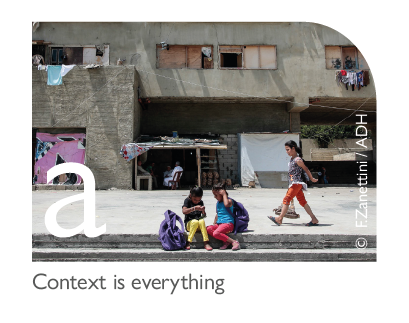
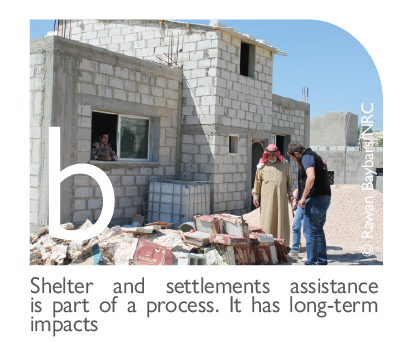
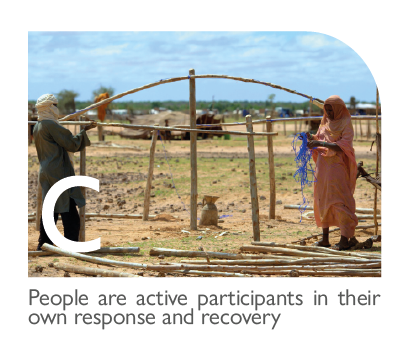
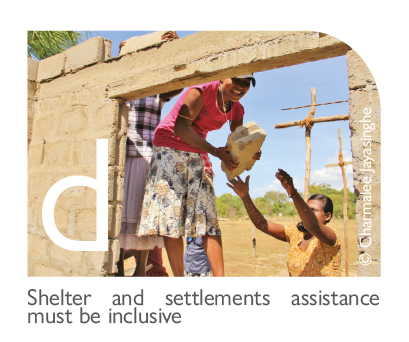
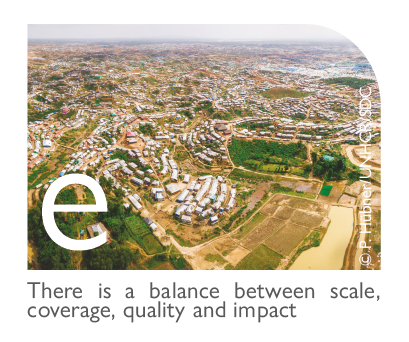
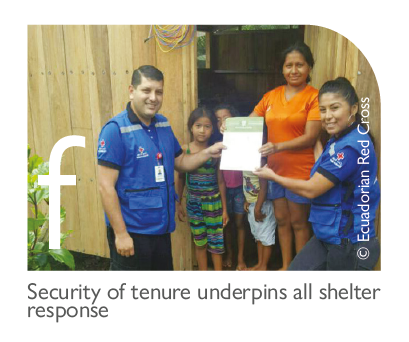
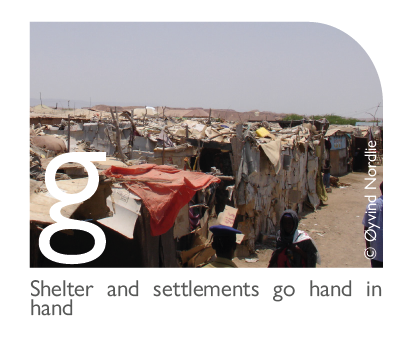
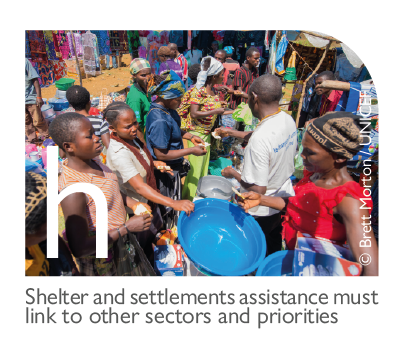
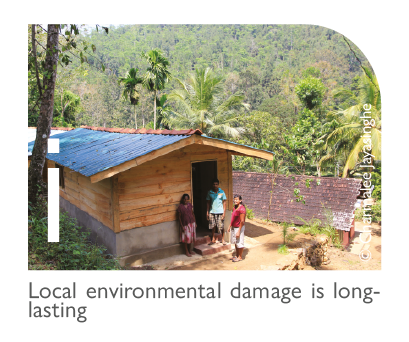
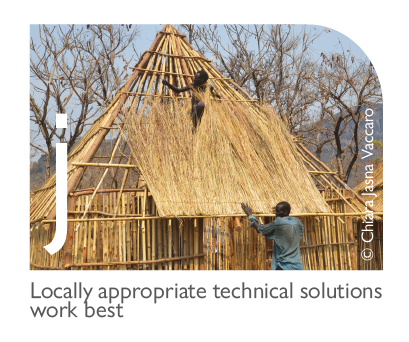
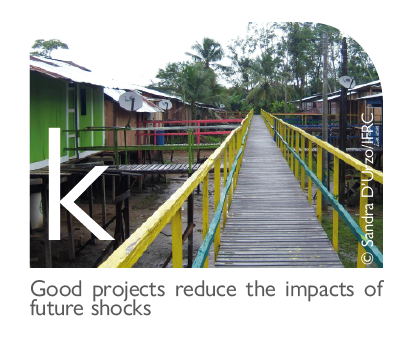
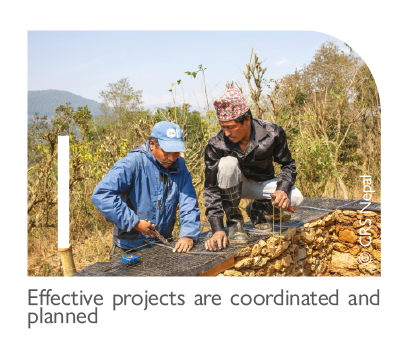
Global Shelter Cluster (2021). Recurring messages from Shelter Projects. Shelter Projects Essentials. pg 7.
Shelter practitioners discussing the Shelter Essentials messages, sharing its relevance with experiences from the field.
What to submit?
- A short video, in between 60 to 90 seconds, with one of the Shelter Essential messages as the main subject
- A short video concept essay of 300 words
- You are allowed to submit only one video per message. You can choose multiple messages
Who can participate?
- Open to all above 18 years, the video competition mainly targets students of an undergraduate or postgraduate degree in fields related to social/ humanitarian-built environment
- Videos can be developed individually or in teams of a maximum of three
How to submit?
- Fill in the form and upload the video here
- If you would like to submit videos for more messages, repeat the above process for each video
- Make sure to read the Terms and Conditions before ticking the “Agree to Terms and Conditions” in the Application form
How will we use them?
- The copyright for the videos will remain with the producer
- The Global Shelter Cluster and partners will have the right to use the videos royalty free for humanitarian purposes will due credit on their respective social media channels
Judging criteria
The top three winners will be selected based on
- creativity to convert the message into a video,
- relevance of the content to the selected message,
- structure of the video, visual design, and
- overall experience
Jury
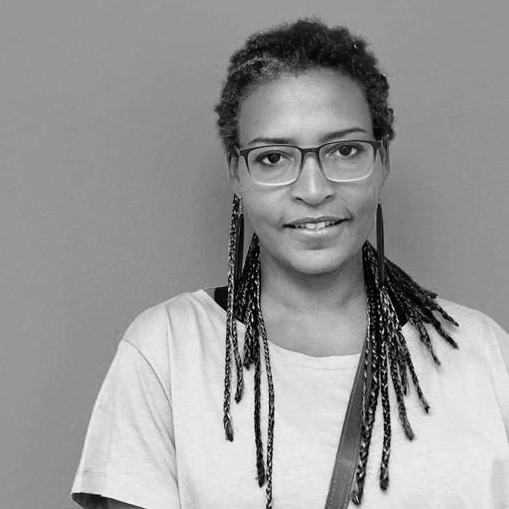
Angela M. Díaz-Márquez
Dr. Angela M. Díaz-Márquez is a professional from Dominican Republic with more than fifteen years of experience working mainly in slums issues from the governmental sector, international NGOs, and the academic sector. She is an architect, international cooperation specialist, trainer of trainers of Sphere Project (Humanitarian Charter and Minimum Standards in Disaster Response) and urbanism researcher (PHD at UPM, Madrid).
Dr. Díaz-Márquez has eight years of university teaching experience in Dominican Republic and Ecuador. She was head of community outreach at Universidad de Las Américas (UDLA) in Ecuador, and head of a multidisciplinary research group LMS (Place, Environment and Society at UDLA). Was member of Advisory Committee on the Applied Urban Research Agenda of Ecuador, for Secretariat for Higher Education Science, Technology, and Innovation, SENESCYT; with the support of German Cooperation (GIZ). She has owned challenges of Minor International Entrepreneurship & Development of TU Delft – Netherlands- twice (2021 and 2022). Was a team member of Statement Working Group for Preparation of an Inter-academy Partnership (IAP) Policy Statement: “Implications of urbanization in the low- and- middle-income countries” Invited by National Academy of Sciences of Sri Lanka.
Dr. Díaz-Márquez worked for important non-governmental agencies such as Field manager of OXFAM (DIPECHO Project with European funds), World Vision, Red Cross (Dominican and Spanish), specifically developing community risk maps, using bottom-up methodologies. Other relevant activity was in charge of Ibero-American Meeting of Sustainable Development (EIMA-2016) into National Congress of the Environment of Spain (CONAMA-2016), adviser of EIMA-2017 and adviser the First National Meeting of Sustainable Development of Panama (ENADES-2018, about ODS).
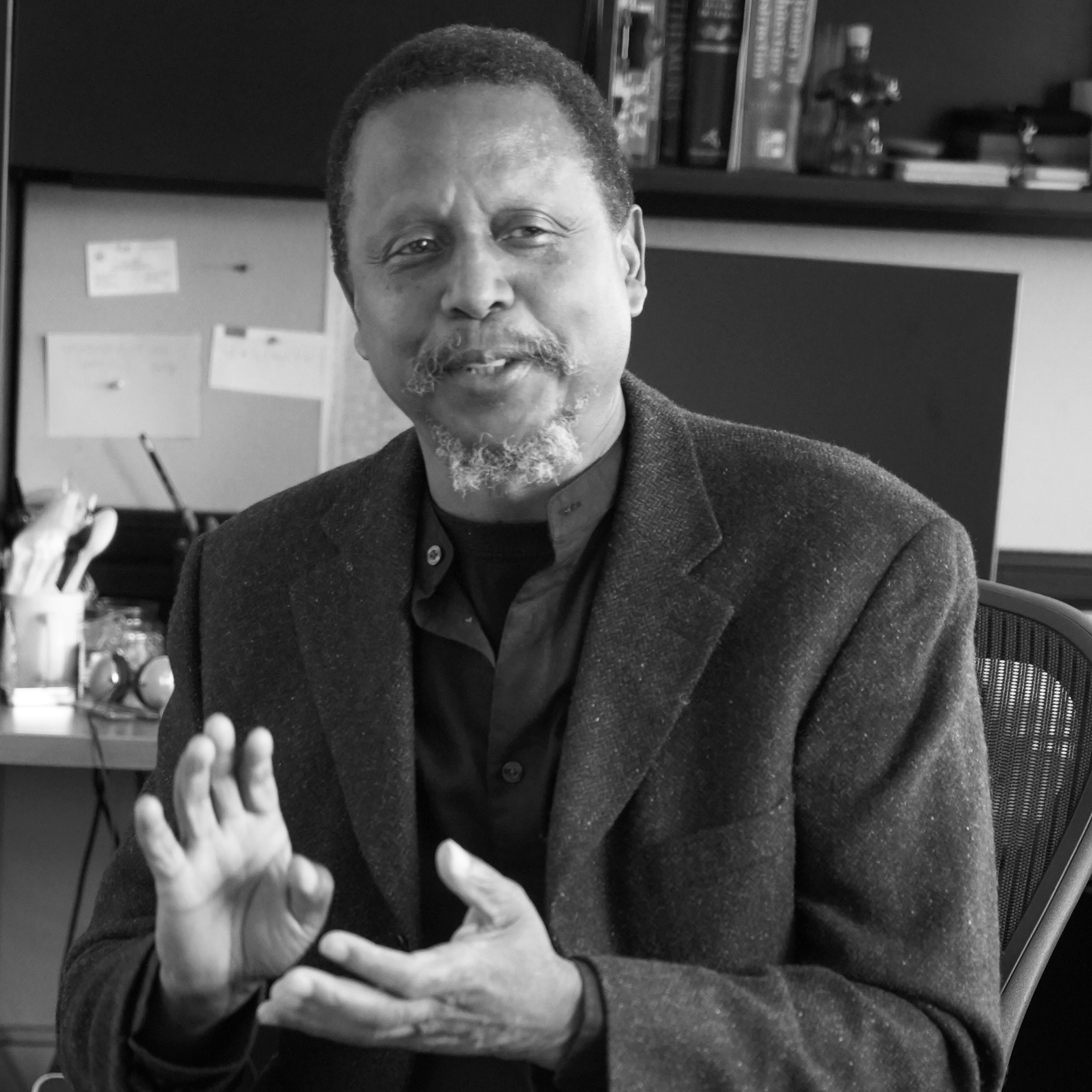
Bradford Grant
Bradford C. Grant is Professor of Architecture and Interim Chair of the Department of Architecture of the College of Engineering and Architecture at Howard University. He has been in leadership roles at Hampton and Howard Universities as Chairperson, Director, Associate Dean and Interim Dean. As a registered architect and a distinguished educator, he has extensive experience in Universal design, contemplative practices in design education and environmental justice in architecture. His scholarship, service and his teaching has earned him the Virginia Downtown Development Association Award, the American Institute of Architects (AIA) Education Honor Award, the AIA Institute Honor for Collaborative Achievement and the ACSA/Buell Center Course Development Prize in Architecture, Climate Change and Society.
Grant has served as past president of the Association of Collegiate Schools of Architecture (ACSA), Humanities DC, and the Center for Contemplative Mind in Society. He is the former president of the board of the Healthy Building Network (HBN) and is the co-founder of the “Directory of African American Architects”, the first comprehensive survey, analysis and report on the numbers and role of the African American Architect. He was appointed as the inaugural “Instagram Artist in Residence” at the Smithsonian National Portrait Gallery and has been honored with the ACSA Distinguished Professor Award.
Grant completed his graduate degree at the University of California, Berkeley and the undergraduate degree from California Polytechnic State University, San Luis Obispo.
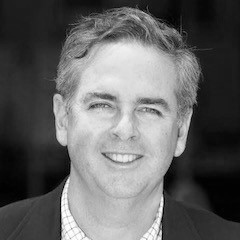
Brendan Cahill
Brendan Cahill is the Executive Director of Fordham University’s Institute of International Humanitarian Affairs (IIHA). As such, he is the Program Director for all undergraduate and graduate programs and is responsible for its educational and training programs, its research areas, staff, partnerships and overall strategy. He has created, directed, and taught in academic programs throughout the world. He is the Publisher and Editor of The Refuge Press, an independent imprint with an emphasis on humanitarian and social justice issues.
Besides his work for the IIHA, Brendan sits on the Editorial Board of the Journal of International Humanitarian Action. He is a member of the Advisory Board of The Humanitarian Centre of University College Dublin, the Executive Board of the Jesuit Universities Humanitarian Action Network, and the Curriculum Oversight and Steering Committee of Jesuit Worldwide Learning. Brendan sits on the boards of the Bartow Pell Conservancy, the Center for International Humanitarian Cooperation and the Point Lookout Civic Association. He is a Trustee of The Helen Hamlyn Trust in London and a Director of the KMC Foundation in New York. He is married with four children and lives in New York.
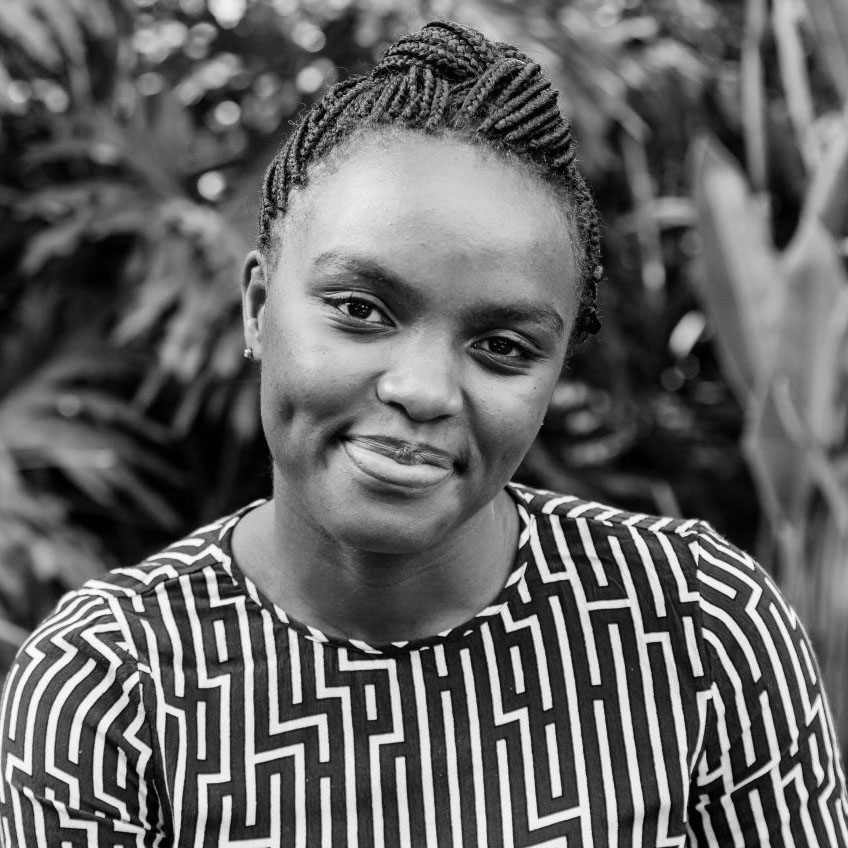
Etta Madete
Etta Madete is an award-winning BORAQS registered Sustainable Design Architect, EDGE Expert, Aspen Senior Fellow passionate about affordable sustainable housing. She is the co-founder and executive director for Zima homes, the pioneer sustainable affordable housing development in Kenya, currently under construction. In addition, she is the Affordable Housing Lead at BuildX Studio and a Lecturer(TF) at the University of Nairobi.
Alongside her active practice, she has published peer-reviewed papers on “Application for Brick as a Building Material for Low-Cost Housing “, “Daylighting in Affordable housing”, “ OCHA- East African Countryside forms” and “Sustainability and Inclusivity in affordable housing”, in addition to articles featured in the daily nation, architectural review, Aljazeera, Mail & Guardian amongst others on the correlation between the built environment and society. Her advocacy works also span seminars and exhibitions at the University of Nairobi, JomoKenyatta University, Kenyatta University, Hong Kong technical, Berlin Technical University, Guggenheim(New York) and Barbican (London).
With her combined experience and expertise in architectural practice, research, and teaching she continually works on architectural design innovation that brings sustainable economic, social and environmental development to Kenya and beyond.
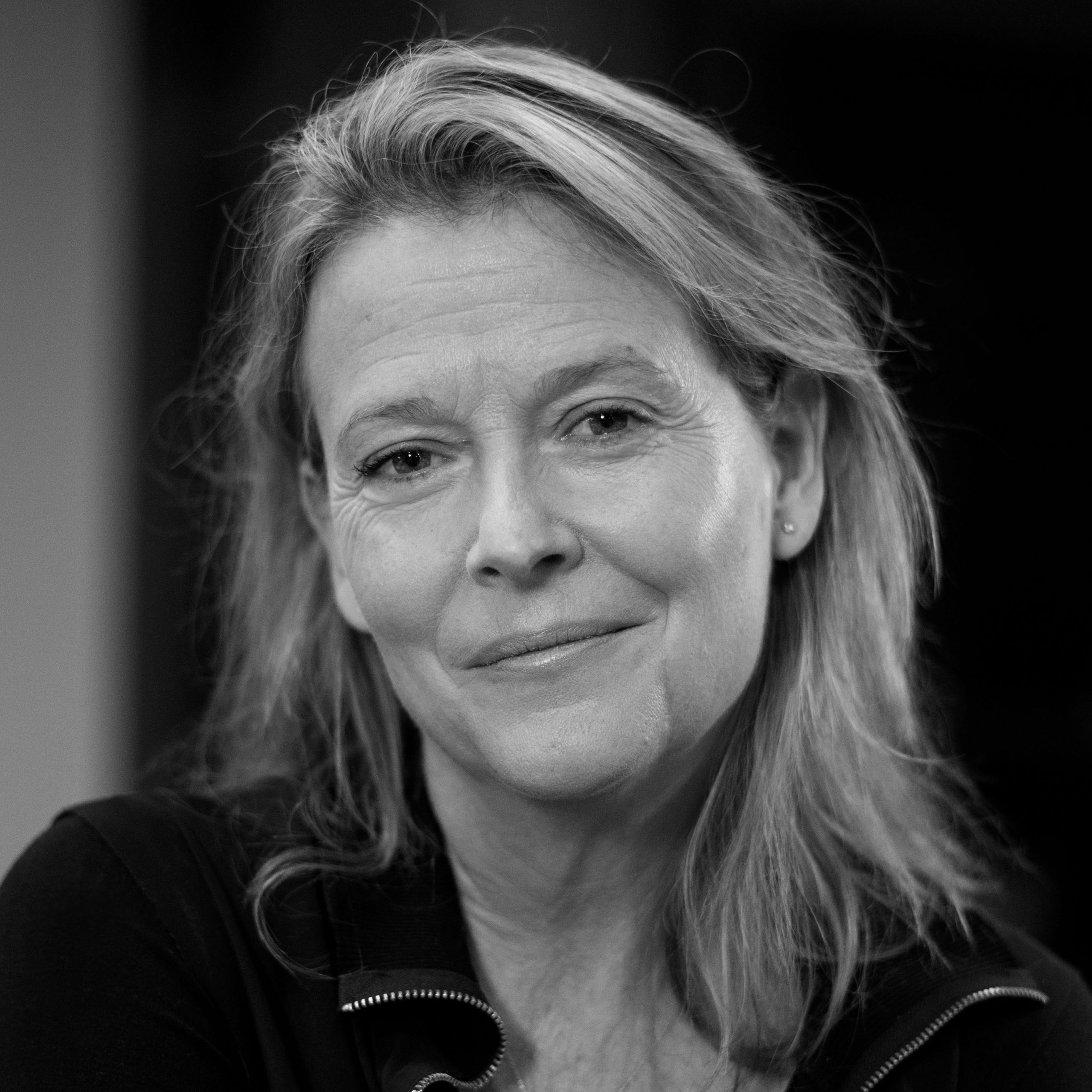
Jo Da Silva
Dame Jo da Silva has earned global recognition as an engineer who has applied her knowledge and design expertise to improve safety, promote inclusivity, and enhance resilience of communities, cities, and infrastructure globally.
Jo is currently Global Director, Sustainable Development at Arup leading business transformation in response to the climate, biodiversity and equity crises. She is also an Arup Fellow and an Officer to the Group Board.
Jo founded Arup International Development to direct Arup’s expertise and creativity to improving human development outcomes in the global south. She has led the planning, design and implementation of buildings, infrastructure, and urban regeneration projects globally, and worked extensively in crisis and disaster contexts for non-governmental, UN agencies and multi-laterals.
She has an honorary doctorate in humanitarian engineering from Coventry University and was awarded the Gold Medal by the Institution of Structural Engineers in 2017, and last year was recognised as a Royal Designer for Industry for sustainable design. She was made a Dame Commander of the British Empire in the 2021 New Year Honours for services to engineering and sustainable international development.
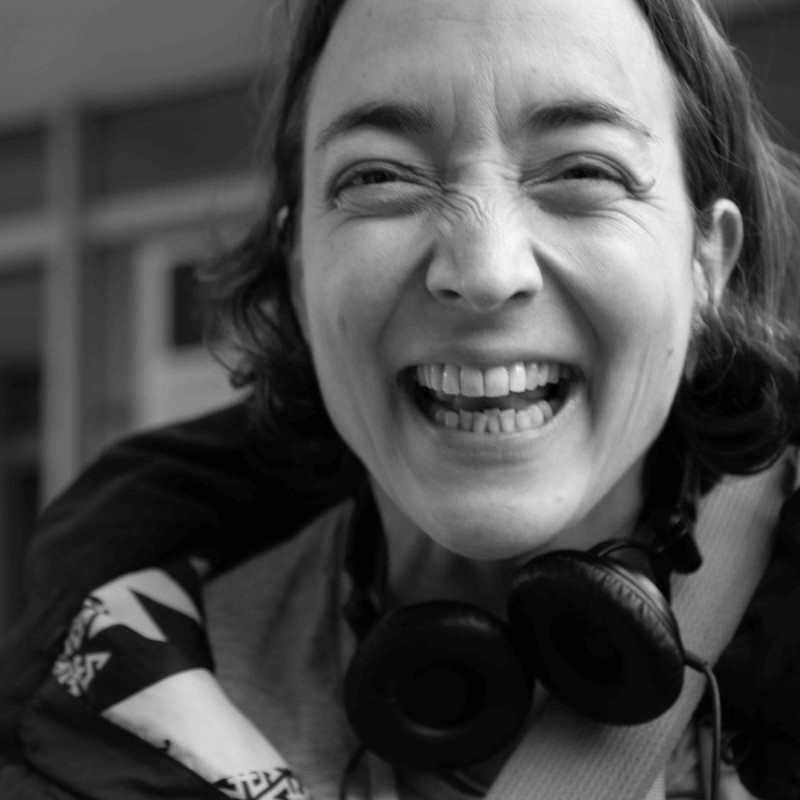
Lucia Zoro
Lucia Zoro, Global Specialist Content Producer at Save the Children International, producing stories about Save the Children’s work around the world using film, photos, case studies and other media. Passionate about ethical best practice and representation in content gathering and distribution, Lucia has worked in content production for over 20 years. Starting in factual TV, independent documentaries and news, she has produced content at Save the Children in multiple formats since 2011, and now regularly commissions freelance creatives.

Mauro Cossu
Mauro Cossu is an Urban Planner and Researcher, PhD Candidate at Université de Montréal. In his research, he focuses on the role of cultural festivals in reducing vulnerabilities in remote communities. He is also the co-organizer of a series of on-line debates, seminars (and student competitions) with the aim of challenging different viewpoints and examining common controversies in the disasters, housing, urban development, and post-disaster reconstruction fields.
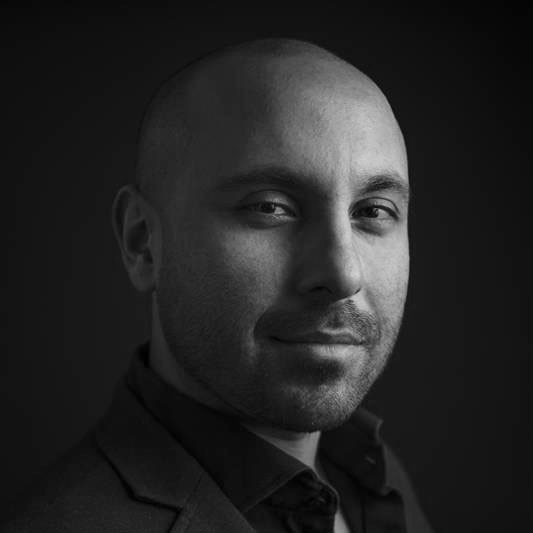
Muse Mohammed
Muse Mohammed works for the UN Migration Agency (IOM) in Switzerland as its main photographer and a leading multimedia storyteller focusing on current and ongoing humanitarian emergencies worldwide. His passion is with people and exploring ways to convey their stories of hardships and triumphs with dignity and compassion.
He has covered IOM’s work in over 30 countries with his work featured on news media outlets including The Guardian, Al Jazeera English, BBC, CBC, ABC Australia, and exhibitions such as Swiss Press Photo 2018 and 2020.
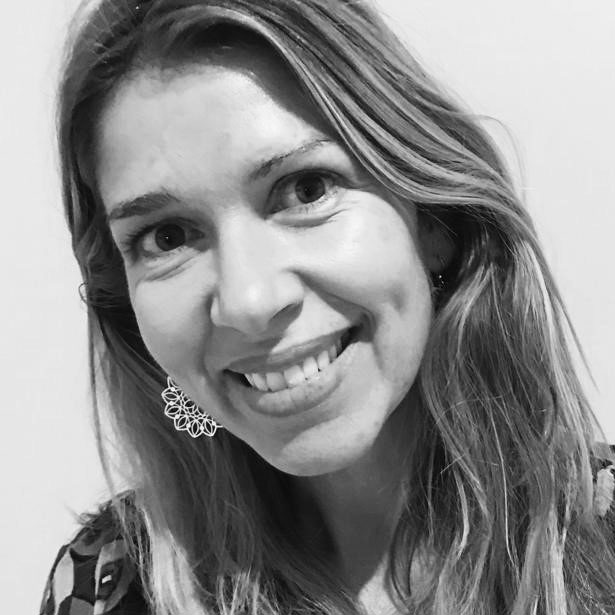
Sandra D’Urzo
Sandra D’Urzo is a Senior Shelter, Settlements and Urban risk management Officer at the International Federation of Red Cross and Red Crescent Societies (IFRC) based in Geneva. Sandra is an architect whose work aims to improve the living conditions of vulnerable people. She designs and implements tools for Shelter risk reduction and leads post-disaster programmes in the Americas, Africa, and the Middle East. She is a much-in demand lecturer in European universities and has extensively written on post-disaster reconstruction, architecture, and human dignity.
She is the proud mother of three girls, raised between France and Italy, and fluently speaks five languages.
email: sandra.durzo@ifrc.org On Twitter /IG: @SandraDUrzo
Shelter Projects Photo Competition 2024
Submission period: 1 July to 30 September 2024.
No entries foundShelter Projects Photo Competition 2024
